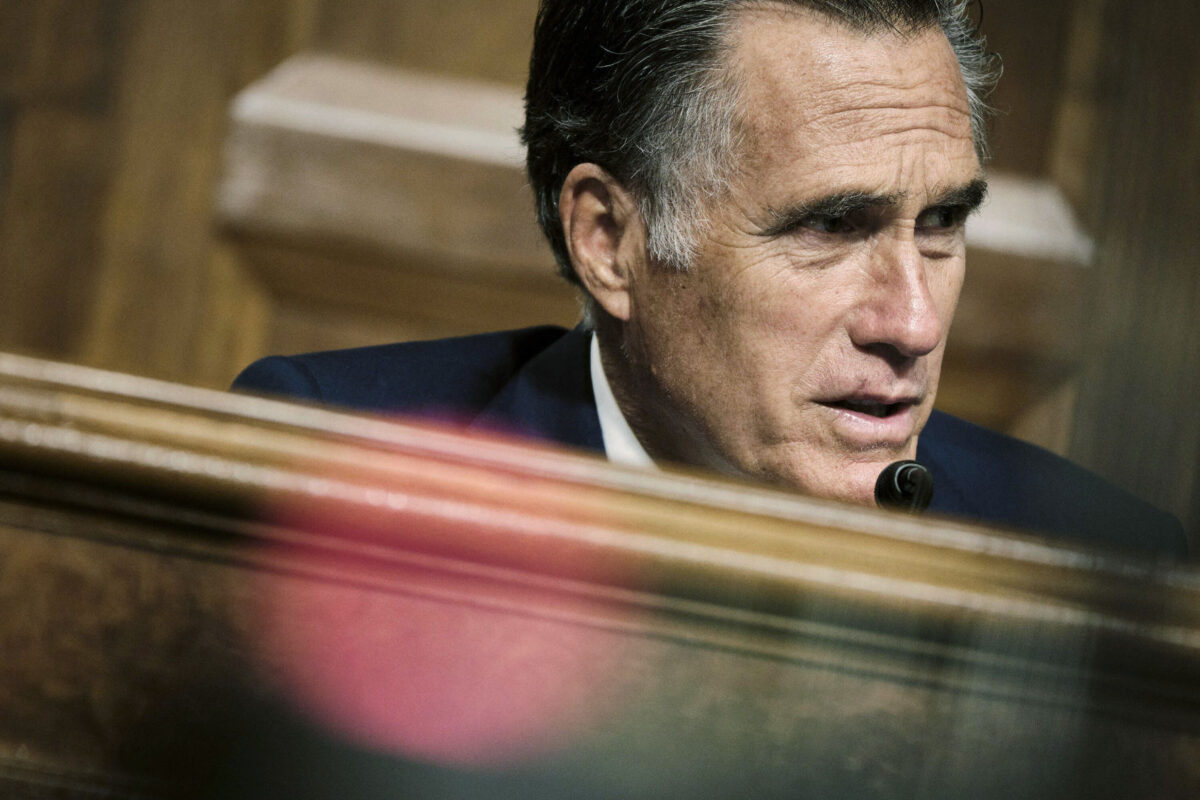Utah’s Mitt Romney talks about combating climate change in the Pacific
U.S. Sen. Mitt Romney, R-Utah, talked about ways to combat climate change in East Asia and the Pacific during a subcommittee hearing this week.
Romney, ranking member of the Subcommittee on East Asia, the Pacific, and International Cybersecurity Policy, made the opening remarks of Wednesday’s meeting, noting that “the topic we’re discussing is obviously of great significance to each of us in this room and to people around the country and around the world.”
“It is my view that, 50 years from now, as people look back to our generation and ask what our legacy might have been, that upon which they will be most critical was our failure to act to prevent the warming of the planet and the climate change associated with that warming, and that the political winds that prevented us from acting will be seen as an extraordinary lapse in America’s judgment, and that this is a time for us to come together and find solutions that will actually help protect our planet for future generations,” the Utah senator said in his opening remarks.
Romney told the committee that, in his perspective, “the only effective way we will have in dealing with climate change is through the advance in technology, technology which will be adopted not just here but around the world, and adopted because it is effective in reducing emissions and also lower-cost than some of the carbon-based alternatives.”
“Because I think it’s unlikely that poor nations, in particular, that are becoming developed, will adopt technologies that are far more expensive, even if they reduce CO2,” he said. “They will move to those things which are less expensive, so it’s incumbent upon nations that have the resources we have to invest in technology, as fortunately our colleagues have recently voted to do — investing in technology which will help not only … reduce our emissions (in the U.S.) but also help others and the rest of the world.”
While Romney acknowledged that the U.S. is “responsible for a huge slug of the CO2 that’s in the atmosphere,” he added that “the growth in emissions of CO2 and other warming emissions is going to be driven not by the United States, because over the last decade our emissions have been coming down, as have those of the EU, but instead the developing nations, which understandably are getting washing machines, and more automobiles, more electricity in the home (and) air conditioning.”
“And as a result, China, Brazil, Indonesia and India are expected to dramatically increase their emissions of greenhouse gases,” said Romney. “And so it’s incumbent on us to take a close look at those places in particular to see how we can help and encourage them to take action that does not add to the extraordinary burden that’s in our environment.”
Romney also said he is concerned “that China is hiding their CO2 plans by, if you will, exporting the production of facilities through (the) Belt and Road (Initiative), and putting infrastructure in place in other countries that will be emitting vast amounts of greenhouse gases and they’ll say, ‘See, we’re not doing it, it’s just being done in other countries.'”
“So, understanding China’s role and how we can work together is important,” he said. “At the same time, I note that … it’s critical as we deal with China that yes, we want them and other nations to reduce their emissions in their plans going forward, but at the same time we will not forget or look beyond — look away, rather — from the predations of their economic activities, their military activities in the South China Sea and elsewhere, and, of course, their extraordinary human rights abuses.”
Other members of the Subcommittee on East Asia, the Pacific, and International Cybersecurity Policy include Sen. Jeff Merkley, D-Oregon, Sen. Ted Cruz, R-Texas and Sen. Mike Rounds, R-South Dakota.


